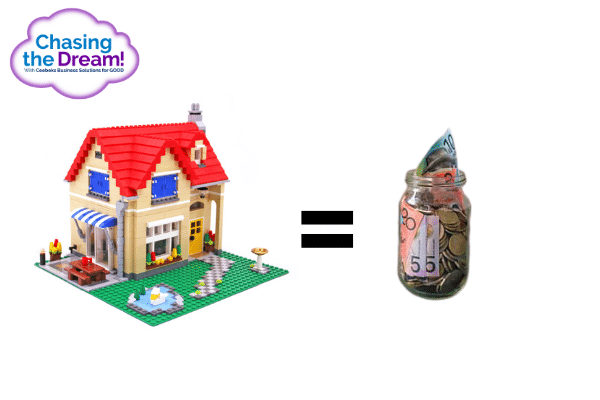One of the most powerful elements of property investing is that you can access the equity you have in your current property to continue to invest and grow your portfolio.
It can be a misconception that you need to have huge sums of money to grow a large portfolio when in reality, you just need to wait for the natural growth that occurs over time and leverage the equity that has been created.
What is Equity?
Equity is simply the market value of your property, less the money you have owing on it.
For example, if your property is worth $500,000 and you have a mortgage of $300,000 remaining on the property, then you have $200,000 in equity that you can access to continue to invest. Building on this example, if the value of your property grew further to $600,000, that would mean that you would then have $300,000 in equity in which to invest. This highlights the power capital growth can have, when it comes to building a large property portfolio.
Accessing Equity
The first step in accessing the equity you already have in your home is to get your property valued. It is important to get it valued by an independent valuer who works with a range of lenders. Your mortgage broker will be able to guide you on the process. Similarly, they will also be able to help you structure your loans in a way that will be most suitable for your situation. For instance, you might want to cash out a portion of your equity and leave it in an offset account to use as a deposit on an investment property.
It’s also worth noting that to access the equity in your home, you will still need to meet the normal requirements from the lenders when applying for a home loan. Mainly, that means you will need to be able to service the loan based on your current income and expenses.
Investing Your Equity
Your mortgage broker will be able to work with the lender to determine not only how much equity you can access, but they will also be able to set a pre-approval limit for your next purchase. As a general rule, you only want to borrow up to 80% of the property’s value in order to avoid other costs such as Lenders Mortgage Insurance.
Returning to the example of our property that is worth $500,000 with a $300,000 mortgage – while you have $200,000 in equity, you will likely only want to access $100,000, which is 20% of the property’s value. These funds can then be used to pay for the deposit on another property as well as additional costs such as stamp duty, settlement and your valuation expenses.
Over time, we know that property is an appreciating asset and when your properties rise in value, you will be creating more and more equity that you can continue to access. This is how you can build up a large portfolio, with only the one initial deposit on your first property.
Give us a call if you would to have have a chat about how you can make the most of your equity.
General advice disclaimer
The advice provided is general advice only as, in preparing it we did not take into account your investment objectives, financial situation or particular needs. Before making an investment decision on the basis of this advice, you should consider how appropriate the advice is to your particular investment needs, and objectives. You should also consider the relevant Product Disclosure Statement before making any decision relating to a financial product.
Only financial planning advice provided by CeebeksTM Financial Solutions is associated with Avana Financial Solutions.
Christopher Beks (Authorised Representative no. 231937) is a director of CeebeksTM Financial Solutions (Authorised Representative no. 344518) and an Authorised Representative of Avana Financial Solutions Pty Ltd AFSL 516325 and is authorised to provide personal financial advice.


